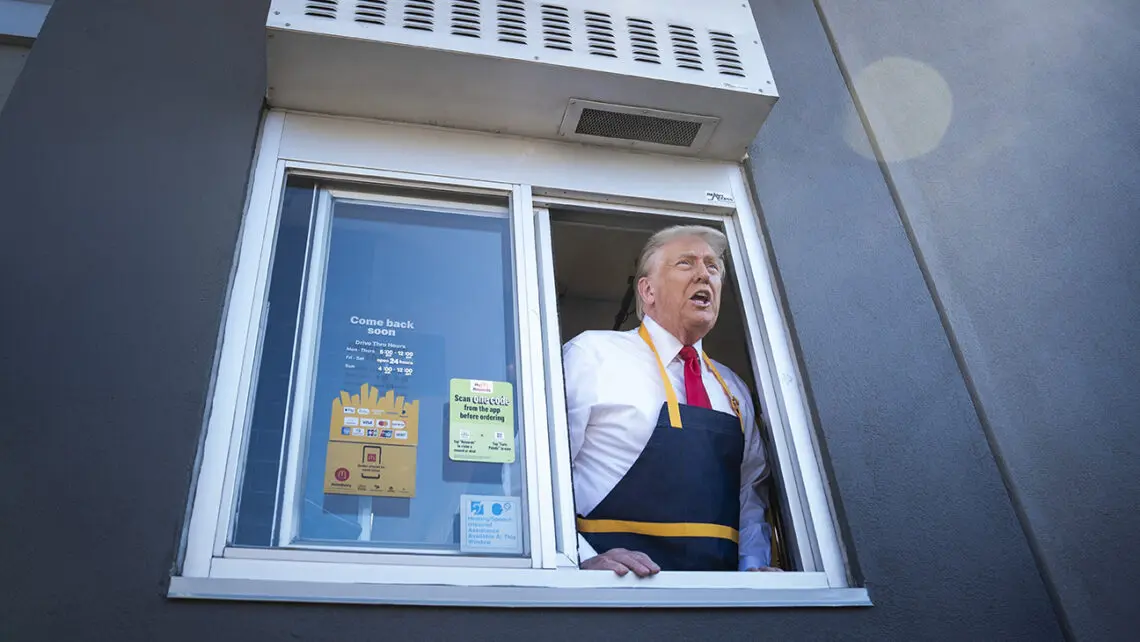Tim Walz responds to Trump’s quirky McDonald’s visit
Reaction to Trump’s McDonald’s stop
Tim Walz’s reactions on a viral event unfolded on Monday, as he called out Donald Trump for engaging in what he termed disrespectful pandering during a campaign stop at a McDonald’s in Pennsylvania. Trump’s visit, filled with picture-taking and customer-serving antics, became an instant sensation online but didn’t sit well with Walz.
Duterte addresses the middle class insult
In an appearance on The View, Walz bluntly criticized Trump’s actions, considering them to be an affront to middle-class workers. He highlighted the genuine experiences of individuals like Vice President Harris, who he mentioned had worked in a McDonald’s previously. Welcoming Walz’s discourse, he elaborated how such stunts don’t resonate authentically with the struggles of middle-class employees.
Walz’s pithy comments on Trump’s policies
Walz didn’t hold back his critique solely to the impracticality of Trump’s visit. He expanded his criticism to Trump’s broader policies, stressing how they fall short in addressing the real issues that impact the workers and families frequenting McDonald’s every day.
“His policies undermine those very workers, from home ownership to health care, reproductive rights, and the cost of products.” – Tim Walz
Acknowledging that more needs to be done, Walz emphasized the disparity between Trump’s campaign antics and meaningful policies.
Political theater or genuine care?
Walz’s denouncement didn’t stop with just a media appearance. He took his assertions further during an interview on The Daily Show with Jon Stewart, where he shared his insights on the nuances of current political sentiments. In this space, Walz revisited the theme of respect—or the lack thereof—towards the middle class in Trump’s policy framework.
“Nothing Donald Trump is proposing does anything about the middle class,” Walz remarked defiantly.
The undecided voters and the quest for clarity
In his dialogue with Stewart, Walz delved into the perspectives of undecided voters, illustrating their plight and hesitation amid the current political climate. Many of these undecided voters, according to Walz, have never ventured beyond traditional party lines, seeking reasons to diverge from Trump but finding few compelling narratives.
“For a lot of them, they’ve never crossed that line. You can say the same about Liz Cheney and Dick Cheney, and the courage it took them to cross over.” – Tim Walz
Engaging the undecided
Bringing into focus the critical electoral group, Walz noted, “These are folks that want a reason not to vote for Donald Trump. We need to give them that.” This statement underscored the necessity of providing robust, relatable reasons for voters to reconsider their political leaning.
Socio-political critique: Middle-class representation in politics
A point that Walz raised, which merits deeper reflection, lies in the authentic representation of the middle class within political narratives. His comments about the disconnect between Trump’s stunts and the real-life challenges middle-class citizens face raised thought-provoking considerations about the portrayal of labor and socio-economic struggles in political campaigns.
Middle-class representation has always been a cornerstone of political campaigns. Whether it’s highlighting job security, affordable health care, or access to quality education, politicians often tout their commitment to these causes. However, authenticity and genuine understanding of these issues can sometimes be overshadowed by political theatrics.
The McDonald’s visit Trump undertook, while visually engaging and undoubtedly relatable to many, falls into a broader discussion about the genuine engagement of politicians with the real issues plaguing everyday citizens. When politicians don a role momentarily instead of fostering substantive policy changes, it creates a gap between public perception and ground realities.
The evolving landscape
In echoing Walz’s arguments, we observe an evolving political landscape where authenticity and policy efficacy are increasingly becoming key voter considerations. Appearances and engaging in photo-ops are rapidly losing their charm without the backing of actionable plans and genuine empathy.
As contemporary discourse moves towards a more nuanced understanding of leadership that goes beyond just photo opportunities, the electorate’s expectations are becoming more defined. Voters look for leaders whose actions speak louder than their well-orchestrated campaign visuals.
Engage with this evolving narrative and share your thoughts on how political authenticity shapes your vote. Stay connected for further updates and in-depth discussions on the intricacies of political strategies and their real-world impacts.

 Italian
Italian







